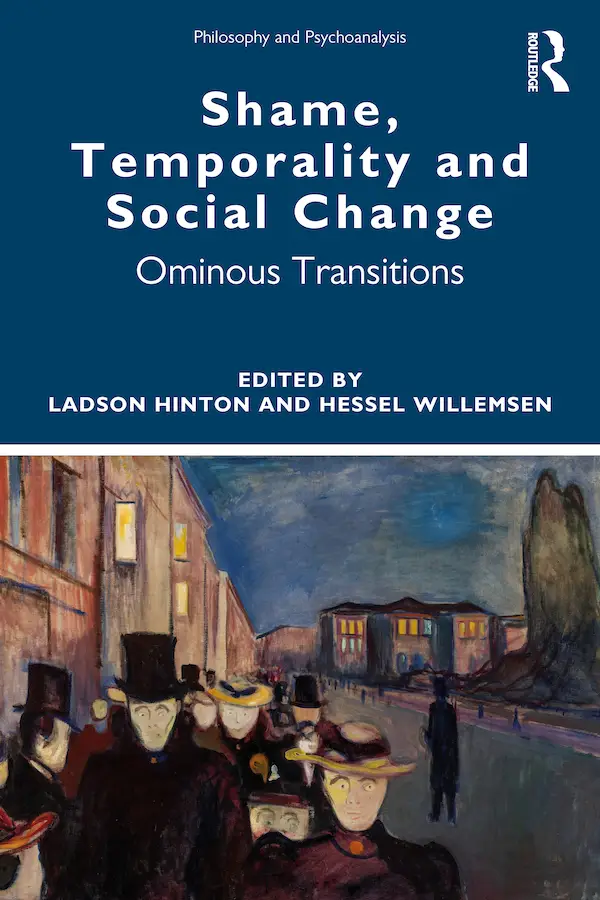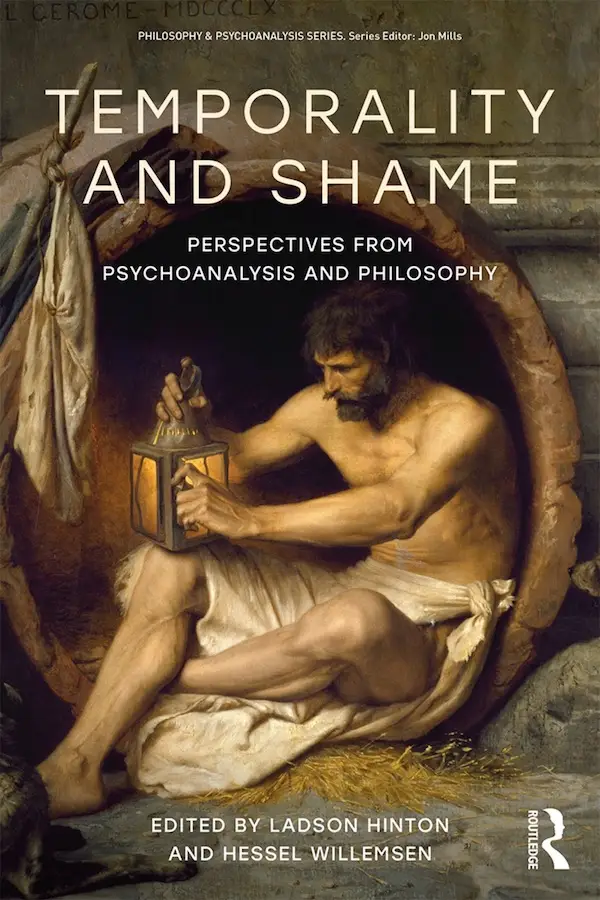4 March 2021
Shame, Temporality and Social Change: Ominous Transitions:
ISDN: 978-0367549039
Winner of the International Association for Jungian Studies (IAJS) Book Award for Best Edited Book 2022
There is a broad consensus that we are in a time of profound transition. There is worldwide political and social turbulence, with an underlying loss of hope and confidence about the future. Technological change and the stresses of late-stage capitalism, along with climate change, undermine social trust and hope for a future worth living. Shameless behavior is rampant, undermining respect for habits and institutions that hold societies together. Shame, Temporality and Social Change offers multi-disciplinary insight into these concerns.
Hinton and Willemsen’s collection covers themes including racism, cultural norms, memory and vulnerability, with examinations of shame at its core. It explores the meaning and significance of shame in a world of social media, autocratic leaders and algorithms and what we can learn from myth as we progress. Increased awareness of the inter-connection of shame and temporality with the ominous transitions of our times provides thought-provoking insights for theory and practice and the ethical decisions of everyday life.
Psychoanalysts, psychotherapists, philosophers, anthropologists and academics and students engaged in cultural studies and critical theory will gain valuable insights from this book’s rich and engaging variety of perspectives on our times.

8 September 2017
Temporality and Shame:
ISDN: 978-1138702332
Winner of the 2018 American Board and Academy of Psychoanalysis (ABAPsa) prize for best Edited book
Temporality has always been a central preoccupation of modern philosophy, and shame has been a major theme in contemporary psychoanalysis. To date, however, there has been little examination of the critical connection between these core experiences. Although they deeply implicate each other, no single book has focused upon their profound interrelationship. Temporality and Shame highlights the many dimensions of that reality.
A core point of this book is that shame can be a teacher, and a crucial one, in evaluating our ethical and ontological position in the world. Granting the fact that shame can be toxic and terrible, we must remember that it is also what can orient us in the difficult task of reflection and consciousness. Shame enables us to become more fully present in the world and authentically engage in the flow of temporality and the richness of its syncopated dimensionality. Such a deeply honest ethos, embracing the jarring awareness of shame and the always-shifting temporalities of memory, can open us to a fuller presence in life. This is the basic vision of Temporality and Shame. The respective contributors discuss temporality and shame in relation to clinical and theoretical aspects of psychoanalysis, philosophy, anthropology, and genocide, as well as the question of evil, myth and archetype, history and critical studies, the ‘discipline of interiority’, and literary works.
Temporality and Shame provides valuable insights and a rich and engaging variety of ideas. It will appeal to psychotherapists and psychoanalysts, philosophers and those interested in the basic philosophical grounds of experience, and anthropologists and people engaged in cultural studies and critical theory.
